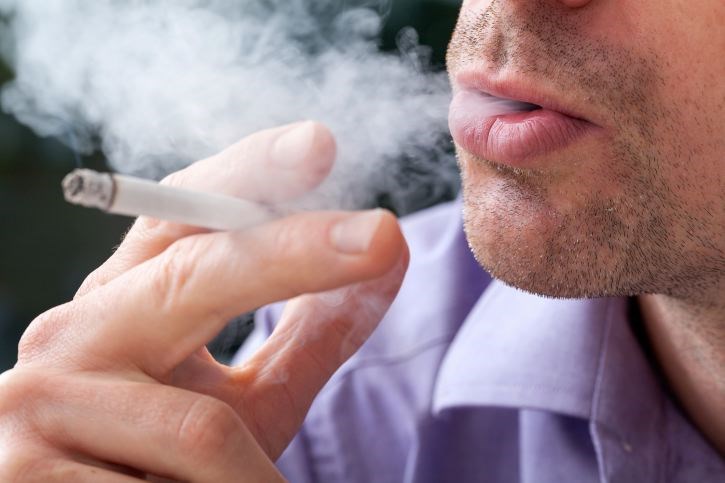Prince George has a contraband cigarette issue with widespread consequences to society, a new study has revealed.
The Western Convenience Store Association commissioned a private investigation of the smoking being done in B.C. and found there is a deep, provincewide foothold in the cigarette market of illegal smokes. Prince George was among the top five worst offenders among the communities surveyed.
"We studied three sites in Prince George and between them it worked out to an average of 17.4 per cent contraband cigarettes, just about bang on the provincial average of 17.2," said Andrew Klukas, president of the WCSA. "In Prince George there was another signal to be concerned about. Each site was pretty much the same in their results, there wasn't a lot of variation, which is a bit unusual. What that tells us, and it's disturbing, is that in Prince George there is such a solid distribution service that it spreads evenly all across the city."
To be contraband the cigarette can be made by a legitimate manufacturer that isn't licensed to sell in B.C., is counterfeited to look like it was made by a legitimate manufacturer, or is mass-produced with no attempt to hide the fact it is illegal. Self-load cigarettes are not considered contraband, as the components were purchased through legal means.
They are detectable because the filters of each cigarette have telltale manufacturing markers so the trained eye can discern its origin.
A research company with expertise in the cigarette tracking field was hired to collect and study cigarette butts at each site. It was "not glamourous" but effective detective work, said Klukas.
The three places sampled in Prince George included the smoking sections at the Railway and Forestry Museum (17.3 per cent contraband), the Aquatic Centre (14.8 per cent) and College Heights Secondary School (20.8 per cent).
The association was not only unaware of the problem of the cigarette black market in B.C. but actually had the idea that it was a non-issue. The illegal trade in cigarettes is common knowledge in Ontario and Quebec, but studies told the group that it tapered to 14 per cent in Manitoba, 10 per cent in Saskatchewan, and the assumption was made that it dwindled further across Alberta and B.C.
Two things happened to alarm the association. One was a major police bust in 2008 that cracked open an operational black market cigarette ring, which led to a vacuum in the illegal marketplace. Two was advertising being spotted around the Lower Mainland openly peddling cigarettes from Asia that were not licensed to sell in B.C.
Government statistics revealed another alarming sign. While the government's tax rates on cigarettes has very slowly increased in recent years, and smoking rates plateaued at a constant number over the same period, the revenues collected by government through the sale of highly taxed smokes showed a sharp decline. People were therefore obtaining a large number of cigarettes while bypassing the public coffers.
An estimated $120 million should have been paid by those smokers into the pool of money that pays for things like teachers, fixing roads, and most notably the healthcare system smokers so often need eventually.
"By reducing the percentage of contraband tobacco consumed in B.C., our province can immediately achieve five public policy objectives," said Klukas, listing the following:
Reduced tobacco access to youth (illegal smoke traffickers often target teens)
Reduced tobacco consumption generally as some will reduce or quit smoking due to the higher cost of legitimate cigarettes
Increased public tax revenue
Reduced organized criminal activity (such large and evenly distributed numbers can only happen if crime corporations are at work)
A fairer business climate for honest retailers.
"The profit / loss margins are actually quite narrow on cigarettes, so our members do not make much on the sale of cigarettes, but the people who buy them also typically buy a lot of other things too in our stores, so that's where the problem lies for us," Klukas said. "If those people buying the contraband cigarettes were coming through our doors instead, your local economies would be doing a lot better overall, legitimately."
There are laws on the books not being enforced strenuously enough, he said, and there have been enforcement promises made by various levels of government - especially Ottawa - that have not been kept. If those things were to occur, the contraband cigarette problem would be positively impacted, he said.



